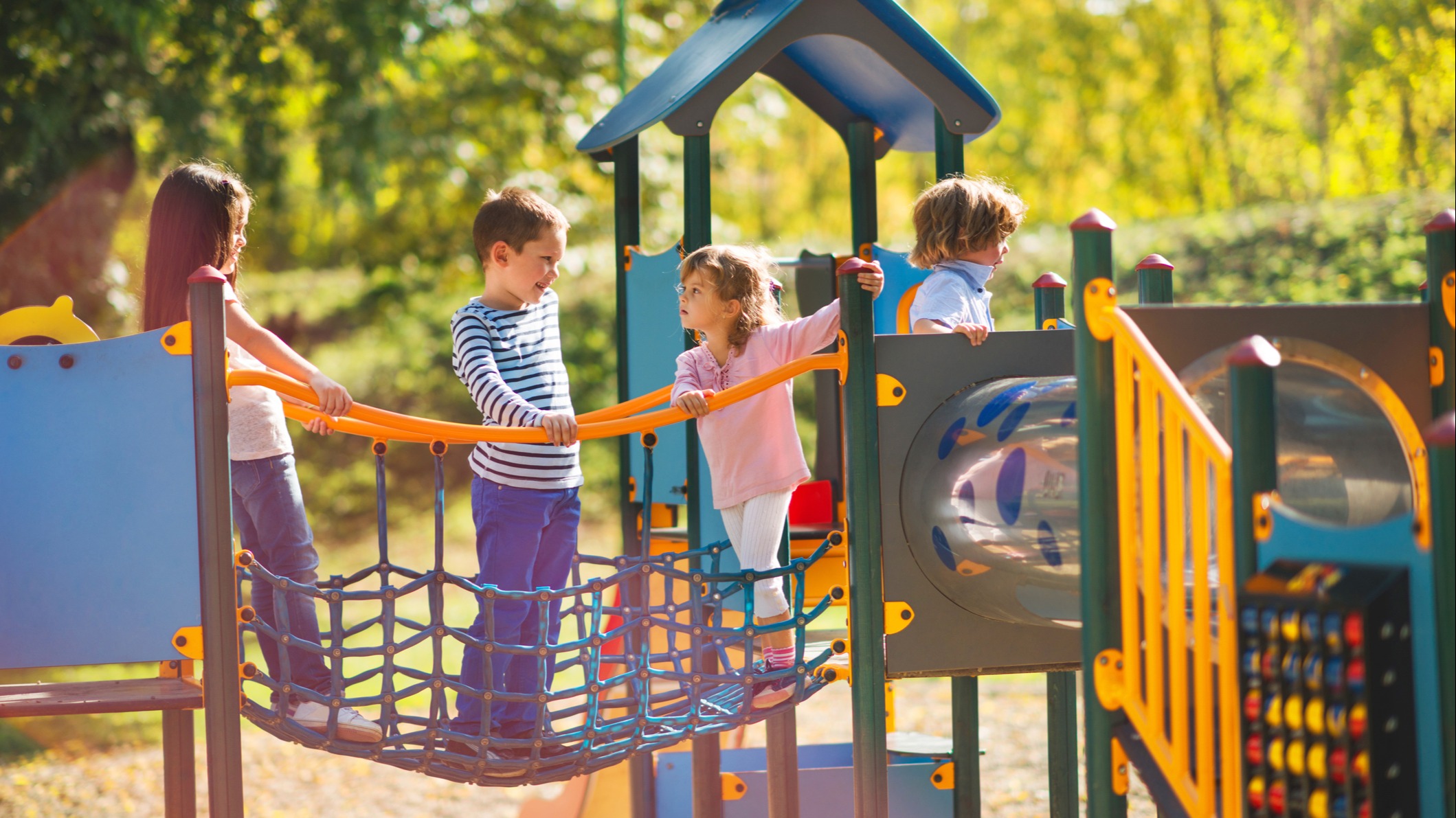
Our daughter started kindergarten this year. From the crowded Black Friday-like drop-offs to the bazillion emails we get from the school, it’s been a whirlwind of new experiences as parents. Many of them remind me of when I was growing up, but I now have a different lens on the situation.
Recently, my daughter came home from school and while we were eating dinner, I asked her what she did that day. She said: “I played with my friends on the swinging bridge. I was at the top of the slide when a boy pushed me.”
I asked, "Did you tell the teacher?"
She shook her head. I know it’s difficult for the school to monitor everything that happens on the playground. Pushing, shoving, hitting, pinching … all these occur within split seconds. And kids get over these things very quickly as well. It’s hard to keep track of all the little incidents.
So I immediately asked, “Did you push him back?”
“No,” she answered.
I was riled up. I insisted, “The next time anyone pushes you, you push them back.”
As a child, I was taught to stand for myself when I was being bullied.
I remember when I was 8, a girl in my swimming class would pinch me while we were waiting for our instructor to come. I’d glare at her and rub my arm as she laughed at me.
This had been happening for weeks before I told my mom about it. Her response to me was: “Pinch her back. She’s going to keep doing it if you don’t do something about it.”
I remember feeling confused. Whenever my sisters and I fought, my mom would lecture us about how hitting is wrong. It was the opposite of what she preached. So I confronted her, “But how come when I fight with my sister, you’re always trying to break it up?”
“Because I’m there to stop it," she told me. "But when I’m not there, you need to learn how to stand up for yourself. I’m not always going to be there.”
The day after the pushing incident at school, I was anxious to hear what happened with my daughter at school.
She said the boy pushed her again. I asked, “Did you push him back?”
She looked at me in the eyes, “No, mom. We’re not supposed to copy what other people do. My teacher says hitting is wrong. I told him to stop and asked my friends to come over to help me.”
I asked, “Then what happened?”
She shrugged, “He went away.”
I have to admit, I was slightly disappointed.
I wanted her to fight back. I wanted that little boy to understand he can’t mess with my daughter. But those feelings subsided quickly because I started feeling humbled and impressed by her.
She had the confidence to tell me that she didn't have to follow what other people were doing. She could solve problems in a way that worked for her. In this case, it meant teaming up with her friends and asking for help — something I didn’t think of telling her the day before.
It’s moments like these where I realize that although my parents did the best they could, it doesn’t mean what they taught me is the right way for my kids.
The whole “I turned out fine” argument is absolutely flawed.
Pinching that little girl back prevented her from pinching me again, but she may have stopped if I had asked my friends to help. She may have stopped if I had tried to talk it out. She may have stopped if I had told the instructor. I didn’t try other tactics because I wasn’t empowered or encouraged to try them. I wasn’t taught the communication skills, developmental understanding, problem-solving skills, and emotional awareness to do so. Thankfully, my kids will.
Like my mom, I’m still going to tell my kids that if someone were to physically hurt them, they have a right to defend themselves.
However, unlike her, I have the ability to teach my kids to explore other options like asserting themselves verbally and asking for help before resorting to physical retaliation. That's how they'll be strong and stand up for themselves, but not just in a physical or belligerent way, but with words, actions, and reasoning.




